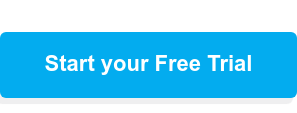Start improving with Life QI today
Full access to all Life QI features and a support team excited to help you. Quality improvement has never been easier.

Organisation already using Life QI?
Sign-up

As the Point of Care Quality Improvement (POCQI) Coaching Guide neatly sums up: ‘Regular coaching is important for maintaining momentum in improving quality of care.’
QI coaching usually takes place in a team environment, but coaching in a one-to-one style - or coaching individuals - can also be really effective. In this article we’re going to look at how to coach individuals in QI, and various methods and ideas that may help you.
While you may be primarily coaching teams in your role as a QI coach, you may also need to coach individuals to enhance their QI skills. People learn skills at different rates and some skills take longer to learn. So one of the tasks of a QI coach is to work out how much to teach each person or group, and not trying to teach everything from the outset. This is where coaching individuals in QI can be a helpful method. It means that people can learn to apply these skills at their own pace while building up confidence.
QI methodology can be complex to grasp when you start out on your QI journey. So, coaching individuals - to complement more structured and group-based learning - can really help people in along their individual QI journeys.
There are plenty of resources available to help you and help your teams on topics that can be difficult to grasp at first, such as Plan Do Study Act (PDSA) cycles. You might want to take a look at our blogs – such as ‘How to write a PDSA’ or an introduction to PDSAs which help distil the key ideas and techniques on these complex topics.
One element to consider is that, although ‘one-to-one’ coaching can be a really effective and motivating way for a QI coach to help individuals build their training – it can be quite a costly approach. Therefore, it might be worth considering coaching individuals as part of a broader learning programme.
In the Health Foundation ‘evidence scan’ report: ‘Quality improvement training for healthcare professionals’ the writers give an example of a programme which was developed to enhance patient care and hone GP leadership skills in an underperforming area with social deprivation. There, they found: ‘New and experienced GPs took part in biweekly action learning sets, individual coaching, and placements with national and local health organisations. One-to-one learning was integral for building confidence and motivation. Each GP completed a project to improve the quality of patient care. The programme was associated with increases in leadership competencies and confidence and changes in services, care processes and culture.’
This kind of approach can work – although the report also points out: ‘Quality improvement implies a review of practices at the organisational level and a collective effort to change, rather than focusing on the individual.’
A coaching plan can be really important in this situation - one that you can adapt for both individuals and teams. A QI software such as Life QI can also really help planning your coaching. It helps you monitor your teams and activities, while providing resources to help people starting out on their QI journey.
The QI team at East London NHS Foundation Trust (ELFT) have a really great QI coaching programme which helps support individuals in identifying the problems they need to solve. QI Coaches at ELFT have ring-fenced time in their job plans to support QI work. During their training course, trainee coaches have a range of workshops and join in on regular days focussed on individual coaching and support. The Institute for Healthcare Improvement (IHI) also has a six-month professional development programme which can help with coaching training.
If you want to help individuals to identify problems to solve, you could recommend they read around the subject. We have produced a range of articles looking at key QI methodology and tools, such as ‘How to write a PDSA’ or an introduction to PDSAs. Central and North West London NHS Foundation Trust have also produced some helpful QI resources that would help people identify those QI problems that need to be solved.
A key area of QI coaching is helping individuals build and run effective teams. As a QI coach you will need to help individuals build effective teams across multiple disciplines. The U.S. AHRQ has a really helpful Practice Facilitation Handbook which talks about how to build effective teams. The writers state: ‘To be effective, the team should include individuals representing all areas of the practice that will be affected by the proposed improvement, as well as patient representatives.’
Once teams are in place, you can also use a QI software platform to monitor performance and help individuals to review effectiveness. A quality improvement software such as Life QI help you monitor and run QI projects all in one place and are an ideal solution for teams to come together and run their projects. We would always encourage whole-team participation in the use of software like this, which leads to better team collaboration and project results.
It is entirely possible to fit QI into daily work and routines. You might want to take a look at one of our articles ‘Daily Improvement as a QI method’ which talks about this very topic. The article also describes the concept of ‘Kaizen’ or ‘Continuous Improvement’. This method encourages people to make improvement a part of everyday behaviour and thinking. In this way teams are encouraged to continuously improve the way they carry out work.
The article sets out the following: ‘Daily Improvement can help to improve staff engagement by removing the onus of a formal project and allowing for more free-flowing improvement and innovation. It also encourages staff to fix a problem in a timely manner, rather than always having to gather the necessary buy-in for a formal QI project.’ This type of improvement in daily work means that staff can see the impact of change quickly, which is linked to ‘joy in work’ and staff satisfaction.
Daily improvement activities benefit from being visually displayed, so you may want to track your metrics on run charts. This helps measure the impact of these daily improvements. Run charts have the benefit of being able to present an ongoing record of the impact of these small changes.
This is where having a QI software such as Life QI can help, as it lets you monitor and track improvements quickly and easily.
As we’ve explored in this article, coaching individuals or one-to-one coaching can be an effective – though potentially costly - way of building QI skills and spreading their application. Therefore, implementing one-to-one coaching on an ad-hoc basis - as part of your learning programme and which complements your team activities - may be the best approach for a QI coach.
Full access to all Life QI features and a support team excited to help you. Quality improvement has never been easier.

Organisation already using Life QI?
Sign-up